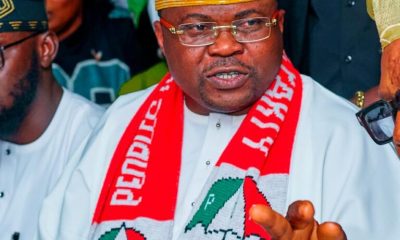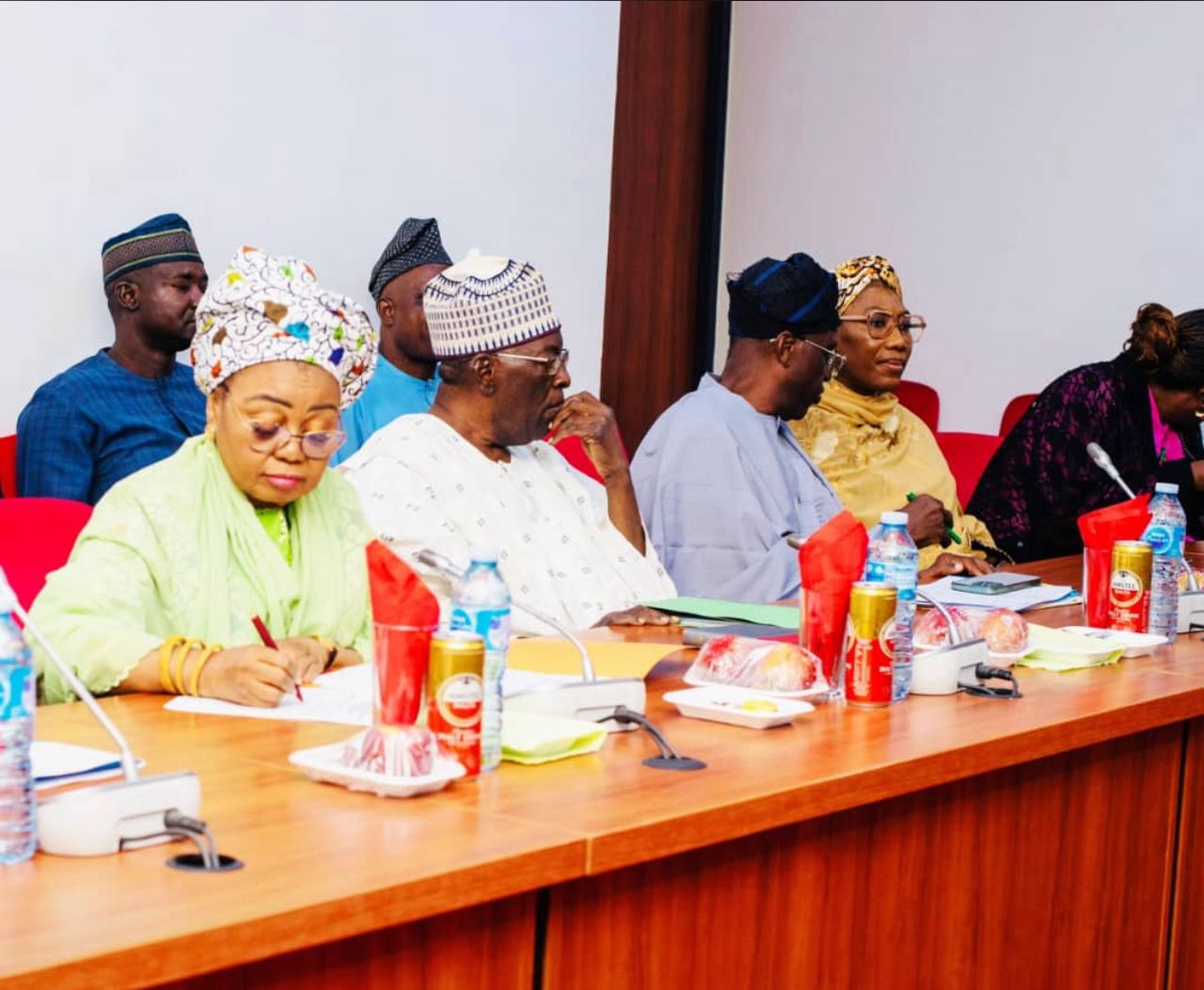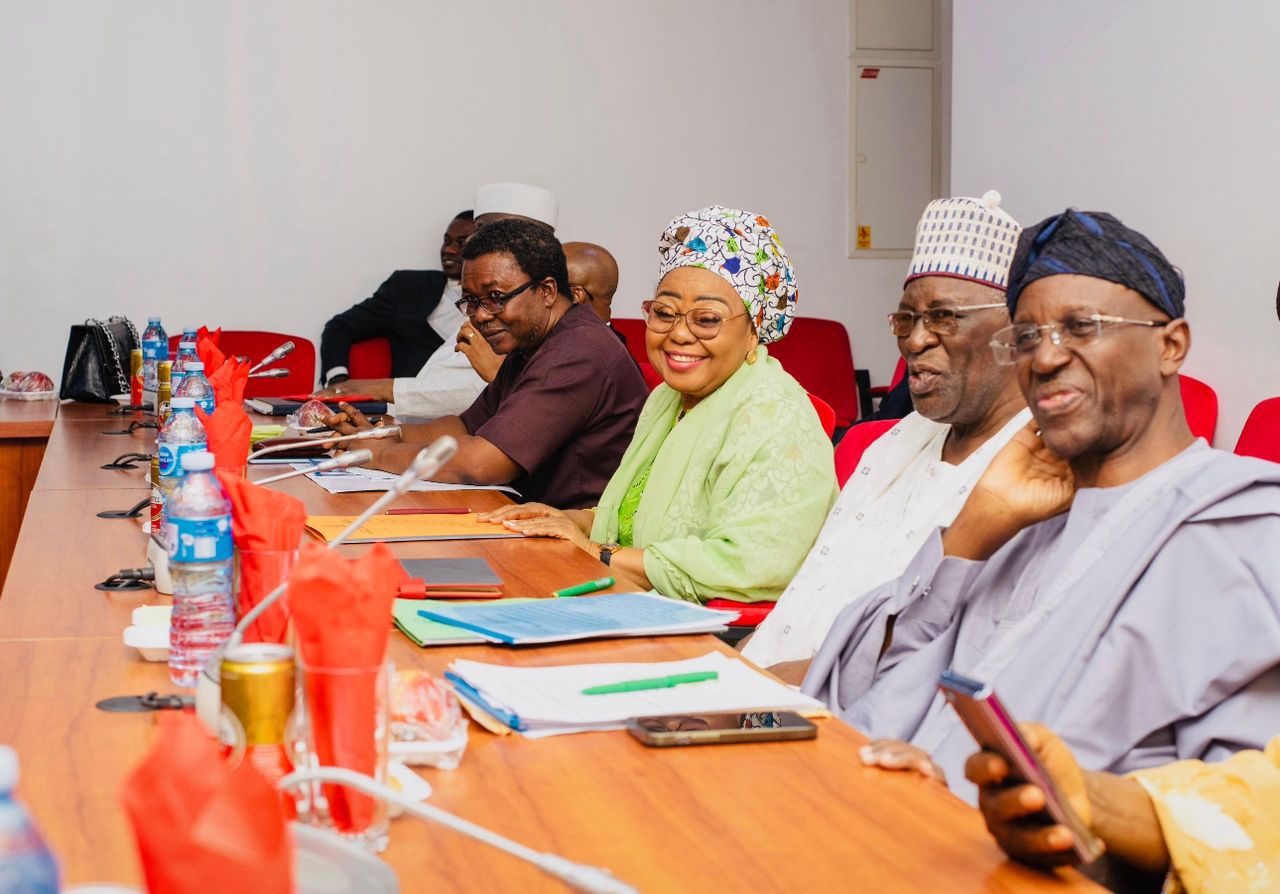society
MADRID AGOG FOR SCOAN SPAIN CRUSADE
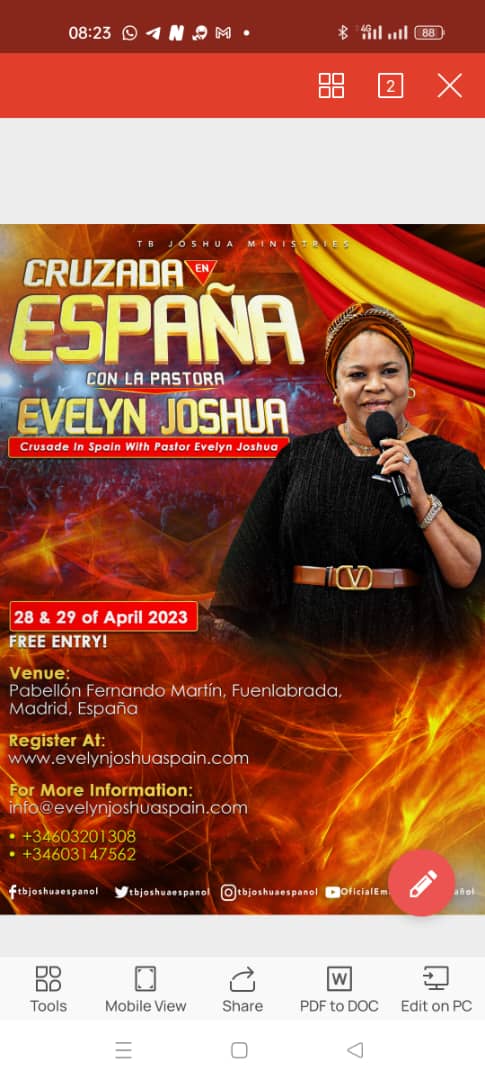
MADRID AGOG FOR SCOAN SPAIN CRUSADE
Ahead of April 28 and 29 SCOAN Crusade in Spain, Madrid, the country’s city capital hosting the event is already agog for the much awaited Crusade for which the Spanish people have been longing over the years.
“With the announcement of the crusade in Spain, people have been trooping in from different parts of Europe like Germany, France, Norway, UK, Portugal, and some South American countries like Ecuador, Peru, Paraguay, Argentina, Uruguay, Brazil, Colombia, Chile, Bolivia, Dominican Republic, Guyana among others for the crusade” said Segun Olanipekun one of the Coordinators of the crusade in Madrid.
Hotels such as LCB group, Fuenlabrada, B&B hotel, Raddison Blu, Prado, Madrid Principe Pio, Madrid and NH hotel are currently already overbooked. The hospitality industries are already experiencing an unusual pressure of services with many more still scampering for booking.
The two-day SCOAN Crusade by Pastor Evelyn TB Joshua will hold at Pabelion Fermando Martin, Fuenibrada Madrid, Spain.
Speaking on the crusade, Pastor Evelyn TB Joshua stated that the Spain crusade would be holding by God’s grace as scheduled and for the glory of God.
Her words: “This is the Lord’s doing and we will continue to give Him all honour, adoration and praise for His marvelous deeds. This is not about Evelyn but SCOAN where God reigns and His mighty hand is visibly in charge and Prophet TB Joshua has remained the General Overseer”.
According to her, there has been a deluge of invitations from several countries all over the world for Crusade of which Prophet TB Joshua to the glory of God was able to attend to some of them before his passing into glory.
“We have continued to receive invitations upon invitations from nations and friends of the Ministry who believe in the God of TB Joshua and know that his spirit is alive as his Master Jesus Christ our Lord and Saviour is alive for He never said ‘good bye’ as He continues in the divine task of blessing, healing, deliverance and salvation for those who trust and look up to Him.
“It is in the veins of these invitations that we have chosen in grace to be in Spain and as soon as God gives us more grace it shall be turn by turn for other countries”, the church leader leading the crusade, Evelyn Joshua further stated.
Clearly, the expectations on this crusade are very high as many all over the world have remained dumbfounded at the great miracles still happening in SCOAN after the passing of the God’s General, a personification of love whose Christ’s spiritual prowess and philanthropic activities touched the lives of many.
society
Senate Backs FCC, Says Underfunding Weakens Constitutional Mandate
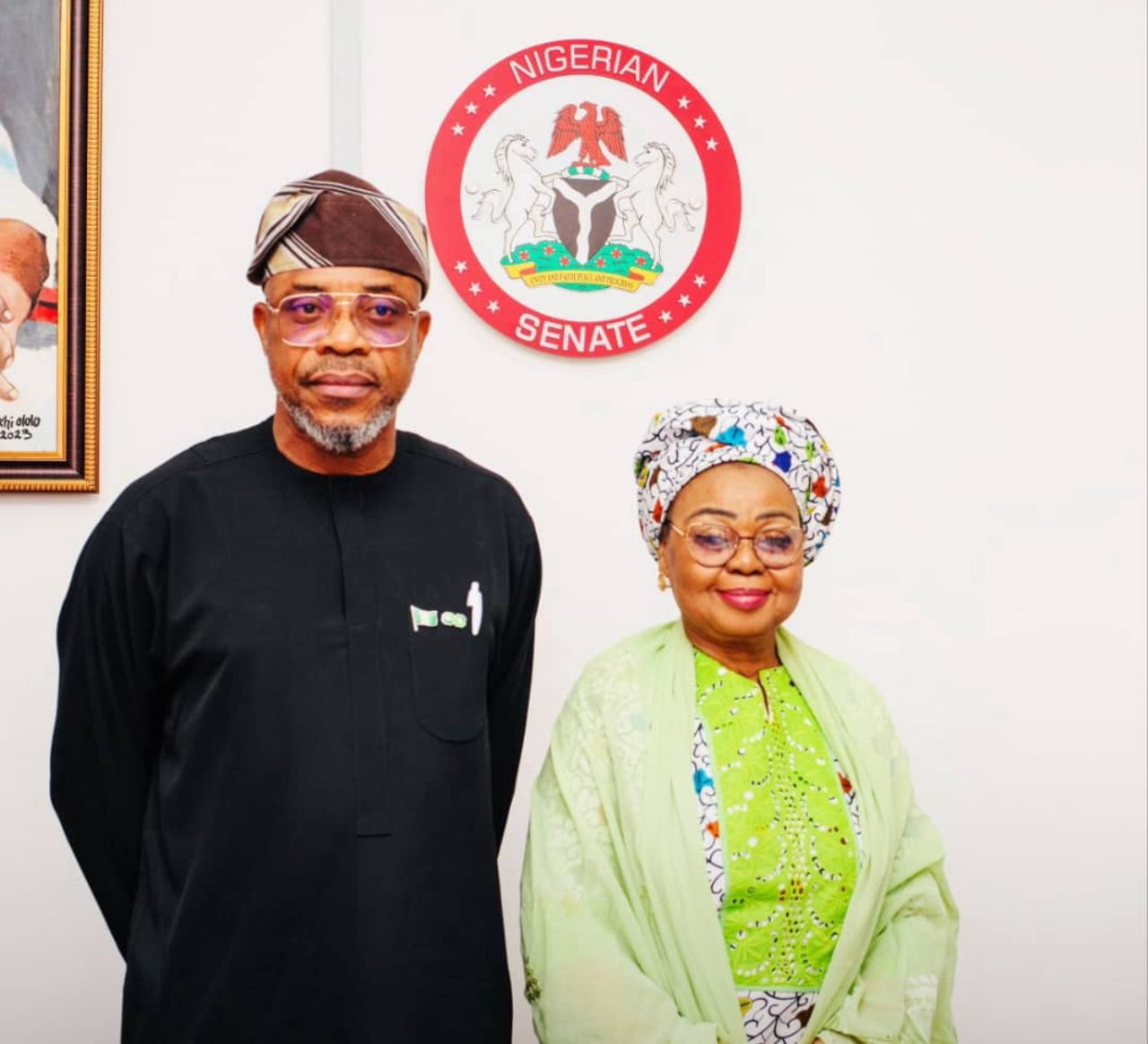
Senate Backs FCC, Says Underfunding Weakens Constitutional Mandate
The Senate Committee on Federal Character has raised serious concern over the underfunding of the Federal Character Commission (FCC), warning that it is affecting the Commission’s ability to carry out its constitutional responsibilities.
During the 2026 budget defence at the National Assembly, the Executive Chairman of the FCC, Hon. Hulayat Motunrayo Omidiran, presented a proposed budget of ₦6.5 billion and explained that limited funding has reduced the Commission’s capacity to properly monitor and enforce compliance across more than 700 Ministries, Departments and Agencies (MDAs).
She stressed that without adequate funding, the Commission cannot effectively ensure fairness, balance, and equal representation in federal appointments and public service.
“We are appealing to the Senate to support improved funding for the Commission. Federal Character is a constitutional duty, and we must be equipped to enforce it effectively for the good of national unity,” she said.
Chairman of the Senate Committee on Federal Character and Intergovernmental Affairs, Senator Allwell Heacho, described the funding gap as a serious setback.
“Federal Character is not optional. It is backed by the Constitution. The Commission responsible for enforcing it must be properly funded to deliver,” he stated.
He assured that the Senate Committee is committed to supporting the FCC to strengthen its operations and improve accountability across government institutions.
With support now coming from both the Senate and House Committees, the FCC is set to push for stronger enforcement and better service delivery nationwide
society
Apostle Suleman Lectures: Your Association Determines Your Acceleration; If You’re Gifted, You’ll Stand Out
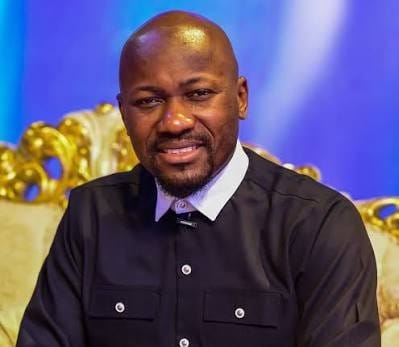
Apostle Suleman Lectures:
Your Association Determines Your Acceleration; If You’re Gifted, You’ll Stand Out
Gifted people are always different. They stand out and never fit in because God uses them in a greater way, the servant of God and founder of the Omega Fire Ministries (OFM) worldwide, Apostle Johnson Suleman, lectures. Speaking about gifts, in particular, spiritual gifts, the ‘Restoration Apostle’ noted that every man is gifted by God. He stated in his sermon that gifts are the result of the finished work of Jesus Christ on the cross.
While suggesting that where a man is most gifted is where he will be most lifted, Apostle Suleman declares that, to stand out in one’s generation, the person must be gifted.
“To be gifted is to be specifically empowered. To be gifted is to be supernaturally assisted to fulfil a task. Many of us are praying for helpers, but you cannot stand before helpers without anything to offer. A man’s gift maketh room. The more gifted you are, the more rooms you have (Proverbs 18:16). Man’s gift maketh rooms for him and bringeth him before great men. No Joseph appears before a Pharaoh until he has capacity to interpret his dreams. The king sent for Daniel because there was a gift in his life. He stood out because there was a gift he had. The problem is not getting helpers, when you have a gift, helpers will look for you. What is your gift?
Apostle Suleman asserts that every man possesses inherent, distinct gifts that are designed to be developed and deployed for a specific purpose. However, he emphasizes, identifying one’s unique gift or purpose requires a defining moment, experience, or interaction rather than just passive introspection, designed to unlock potentials that have been dormant.
“There is nobody that is not gifted. Everyone is equally gifted but it takes an encounter to discover your gift. The gift can be there, hidden but it takes an encounter to discover it. The Bible says Saul was met by Samuel and Samuel took a vial of oil and anointed Saul and said is it not because the Lord hath ordained thee to be captain over the people of God (1 Samuel 10:1). Saul was not a king of Israel, he was a captain. That is why his son, Jonathan could not step into the stool because kingship is by inheritance, but captain-ship is by appointment. So, when Saul met the prophet he began to prophesy. It takes meeting a man to enter the next season. Season is not a bait, it is a man. It takes meeting the right man. The second thing that empowered Saul to stand out was that he joined the right team; Shadrach, Meshach, and Abednego.
Highlighting that the people a man surrounds himself with, learn from, and follow, directly influence the speed and success of his life’s progress, the man of God submits that positive associations can accelerate man’s destiny, while negative associations can drive stagnation, delays, and limitations.
“Your association determines your acceleration. If you’re with the wrong people, you will get the wrong experiences. It is very important. Blessed is the man that walks not in the counsel of the ungodly. Nor stand in the way of sinners, nor sit in company with scoffers. (Psalm 1:1,2,3). You start by walking with them. If you keep walking with them, you’ll soon stand with them. When you stand with them, you’ll sit with them. You must be extremely picky in your relationship. There are some people that should be made to know, because they’re not aware that they’re not your friends. They assume they are your friends but you have to let them know that you are colleagues not friends. You have to be very intentional because friends either add, subtract, divide or minus. You can’t have a friend who’s playing neutrality.
In your walk with God, when the enemy wants to destroy you he will introduce you to a strange company. Any company that kills your fear of God is a wrong company. The right company will make you think of heaven. A right company will want to make you live clean, pure and right. The right company will make you God-conscious. The right company is family-oriented. A right company will make sure you avoid conflicts. A right company will promote God not greed,” he counsels.
society
Ooni’s Ojaja Pan Africa redeems ₦9.2Billion SEC Regulated Public Debt Market, commits to economic stability
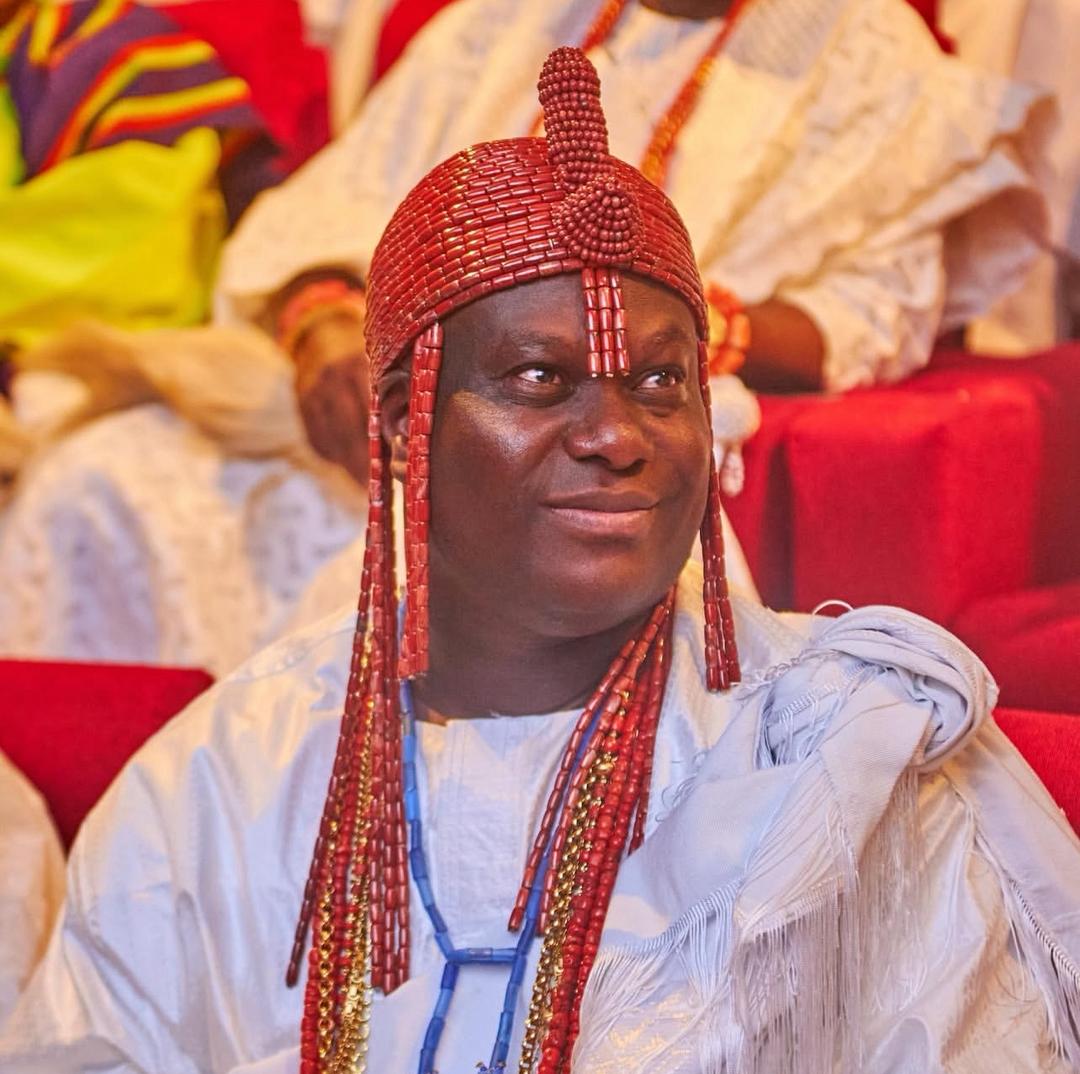
Ooni’s Ojaja Pan Africa redeems ₦9.2Billion SEC Regulated Public Debt Market, commits to economic stability
The Ojaja Pan Africa Limited owned by, His Imperial Majesty, Ooni Adeyeye Enitan Ogunwusi, Ojaja II, CFR, the Ooni of Ife, recently completed the seamless redemption of its inaugural Commercial Paper (CP) issuance, amounting to an impressive ₦9.2 billion. This achievement sends a powerful message about Ojaja Pan Africa’s strong liquidity and unwavering creditworthiness, making waves throughout Nigeria’s financial landscape.
The funds were raised as part of a duly registered ₦10 billion programme on the FMDQ Securities Exchange. Ojaja Pan Africa fulfilled its entire obligation with remarkable efficiency, fully repaying ₦2.15 billion from Series 1, maturing on 21 November 2025, and ₦6.91 billion from Series 2, maturing on 20 February 2026, utilizing resources generated internally. This accomplishment is especially noteworthy against the backdrop of Nigeria’s challenging economic environment, where the Central Bank’s Monetary Policy Rate currently stands at a high 27 percent, rendering short-term borrowing prohibitively expensive for many corporations.
“The timely redemption of our Series 2 Commercial Paper, following the successful repayment of our maiden Series 1, stands as a powerful testament to the stability of Ojaja Pan Africa’s balance sheet and the rigor of our financial planning,” expressed Dr. Ayobami Oyedare, Acting Managing Director of Ojaja Pan Africa Limited. “By meeting these obligations in full, we have validated the trust placed in us by the investing public. With both maturities now successfully resolved, we are strategically focused on leveraging the remaining resources from our ₦10 billion programme to foster significant growth and expansion opportunities across the continent.”
The successful issuance and redemption were expertly handled by Comercio Partners Capital Limited, who acted as Lead Financial Advisers and Arranger. Mr. Stephen Osho, CEO of Comercio Partners, described the transaction as a defining moment for Ojaja Pan Africa. “The flawless execution of this redemption underscores the company’s exceptional operational capabilities and solid balance sheet integrity in the marketplace. Achieving this success amidst the intense pressures of the current economic tightening cycle illustrates the company’s capacity to not only weather challenges but to thrive in such conditions.”
This financial milestone represents just one chapter in Ooni Ogunwusi’s broader narrative of nation-building and economic innovation. Far from a mere ceremonial figurehead, the Ooni is a dynamic visionary with over 25 years of entrepreneurial acumen. As the Chairman and Group Chief Executive of Ojaja Pan Africa, he has transformed the conglomerate into an economic powerhouse, creating opportunities for tens of thousands of individuals across Nigeria while actively pursuing expansion initiatives throughout Africa. The company’s diverse portfolio exemplifies a blueprint for modern African economic development, encompassing ventures in real estate, hospitality, agriculture, education, manufacturing, and tourism.
Ooni Ogunwusi’s industrial vision is actively reshaping Nigeria’s economic canvas. In a landmark move for the country’s tourism industry, he signed a Memorandum of Understanding with the Nigerian Tourism Development Authority (NTDA) in February 2026, earning him the distinguished title of Grand Patron of Tourism. Through Ojaja Pan Africa, he is channeling private capital, leveraging diaspora networks, and utilizing cultural expertise to enhance heritage sites, cuisine, and hospitality infrastructure, all aimed at diversifying Nigeria’s economy away from oil dependency and positioning the nation as a premier global cultural destination.
A prime example of his innovative philosophy is the recent launch of OJAJA Soft Drinks, a proudly Nigerian beverage line crafted entirely from local, natural ingredients such as kola nut, ginger, lime, and lemon, along with an array of indigenous flavors. Designed to offer a healthier alternative to imported beverage giants, this brand not only empowers local farmers but also creates sustainable value chains for young entrepreneurs, vigorously pursuing the goal of import substitution. “It has always been my dream to build a powerful brand that embodies the essence of Africa, one that emerges from our vibrant continent and secures a prominent position on the global stage. My passion for educational excellence inspired me to establish Ojaja University in both Ilorin and Ile-Ife, with the aim of enhancing the quality of education and empowering the next generation of entrepreneurs.”Ooni Adeyeye declared.
Ooni further reemphasised his huge commitment to agricultural development using it as a tool for youth empowerment and development. He created the in and out growers scheme to enhance the youth cocoa revolution Eight years ago. “I personally gave three million cocoa seedlings to youths scattered across the country to help them expand their horizon and also rejig their interest in farming as a tool for development and economic stability. Today, those youths are reaping the rewards of their hard work with bountiful harvest.” Ooni further stressed that his focus for the youth is not merely on cultivating cocoa; but he is more dedicated to reshaping the industry by prioritizing local production over the export of raw cocoa beans. “By processing these beans domestically, we aim to create jobs for more youths and conserve foreign exchange for Nigeria, particularly in the chocolate and beverage markets. These impactful initiatives have garnered significant attention, with coverage from respected media outlets such as CNN and Al Jazeera.” We are not just cultivating cocoa; we are sowing the seeds for a sustainable future for our youth, one that showcases the rich potential of our continent to the world.” Ooni said.
The vision of a self-sufficient, industrious Nigeria is vividly manifested at Ojaja Mall, the largest and most innovative shopping destination in the country. Located in Lekki, Lagos, this massive AI-powered commercial hub features world-class retail arcades, modern cinema experiences, office spaces, an MSME centre, and various entertainment zones. Officially opened with grand celebrations, this landmark project is already generating thousands of direct and indirect jobs, invigorating local commerce, and setting a new standard for smart retail in Africa.
From championing Made-in-Nigeria products within his palace to facilitating youth empowerment initiatives through the House of Oduduwa Foundation, Oba Adeyeye Enitan Ogunwusi is committed to the principles of unity and progress. He is a staunch advocate for collective contributions to national development, regularly blessing the land for peace and prosperity, and fostering a vision of a transformed Nigeria driven by innovation, resilience, and entrepreneurial spirit.
-

 celebrity radar - gossips6 months ago
celebrity radar - gossips6 months agoWhy Babangida’s Hilltop Home Became Nigeria’s Political “Mecca”
-

 society5 months ago
society5 months agoReligion: Africa’s Oldest Weapon of Enslavement and the Forgotten Truth
-

 society6 months ago
society6 months agoPower is a Loan, Not a Possession: The Sacred Duty of Planting People
-

 news6 months ago
news6 months agoTHE APPOINTMENT OF WASIU AYINDE BY THE FEDERAL GOVERNMENT AS AN AMBASSADOR SOUNDS EMBARRASSING





